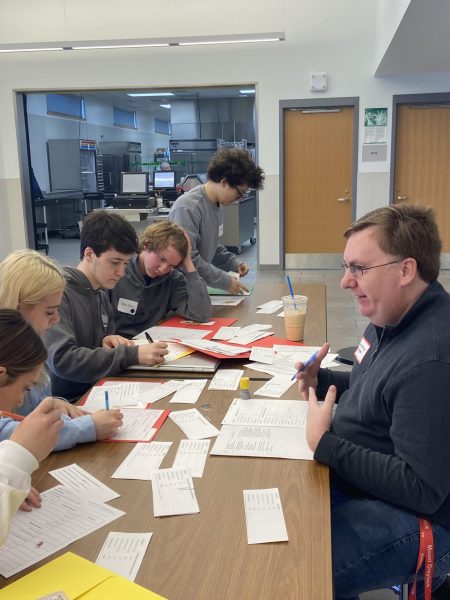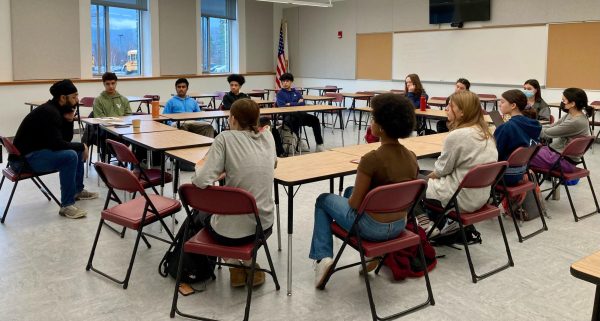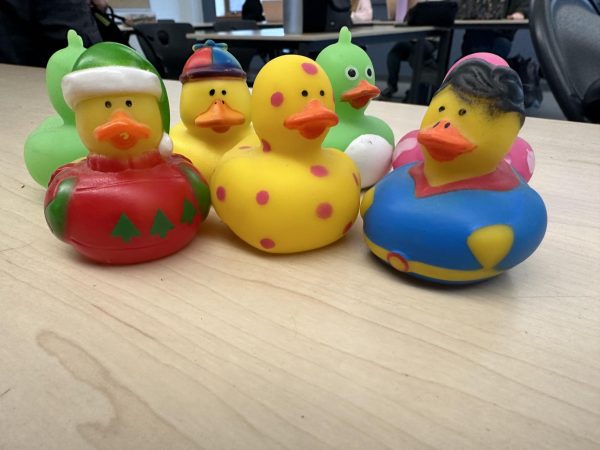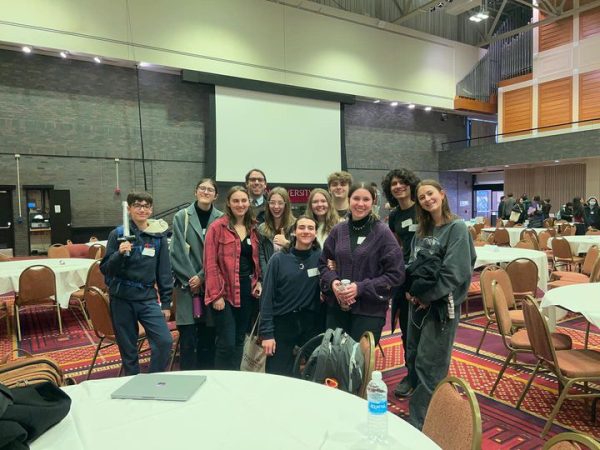Fisher Discusses Officer Training Programs at “Lunch with a Marine” Event
On Thursday, January 17, Sergeant Fisher visited Mount Greylock to explain and promote the process of becoming a marine officer while attending college.
Fisher detailed that to become an Officer in the Marine Corps while pursuing a college degree means joining a Naval Reserve Officers Training Corps (NROTC) program while attending classes. He said to “think of the program as an extracurricular club” that one would take in addition to their academic classes. These programs are situated within many institutions across the nation. For example, Massachusetts houses three programs at The College of the Holy Cross, MIT, and Boston University. However, he explained that it is also possible to commute from other nearby schools to take part in these programs, meaning Harvard, Tufts, and Boston College, among others.
Fisher explained that one can pick whatever degree they want for college and still be part of the NROTC. “You choose your degree – you want to fly an aircraft in the military but you want to be a doctor, you can do that,” said Fisher. Being a member, however, does not often put one in a large demographic of students at a given institution. Fisher explained that one might be one of the only members of the program in a given class, in contrast to a Naval Academy, where everyone is training to be an officer.
Fisher also brought up the NROTC scholarship, a competitive scholarship only given to a few applicants each year, but if a student gets it, then “boom, you’ve got a 180,000 dollar scholarship for four years,” said Fisher.
In terms of officer training, Fisher detailed that all NROTC members are given a basic knowledge of navigation with compass and GPS, learn formal procedure and orders, complete team building exercises, and practice keeping calm under pressure. Next, four years later, officers in training can apply to more specialized schools in order to go into fields such as logistics, engineering, aviation, or commanding forces.
Zeroing in on a specific one of these programs, Fisher introduced the advanced school for infantry officers, stressing its competitiveness and extensive training in making quick, smart decisions, skills necessary “because this isn’t a video game. There isn’t a restart button. Real things happen. Real people die.” The job of an infantry commander, said Fisher, is extremely important, and one must be fully prepared before undertaking a position that entails literal life and death situations. This isn’t a video game. There isn’t a restart button. Real things happen. Real people die. — Sergeant Fisher
When schooling is done, officers command their own platoon in the US or overseas and eventually can get promoted to higher positions if they conduct themselves well.
Fisher ended by providing the audience with some advice, saying that “the ultimate thing is not letting your ego take over,” and by explaining the value of becoming a marine officer: “wherever you go in life, these leadership skills will never change.”









